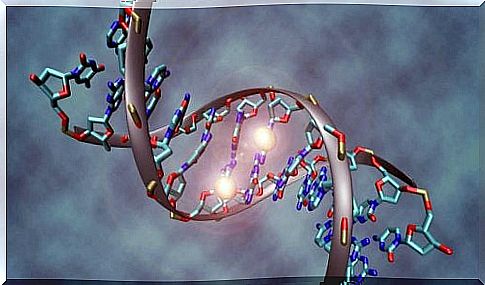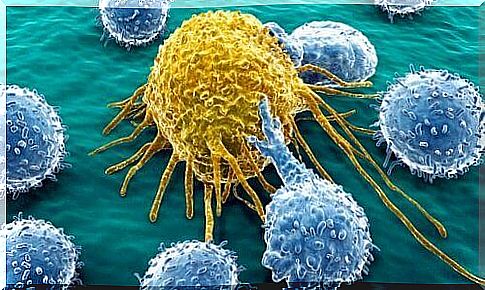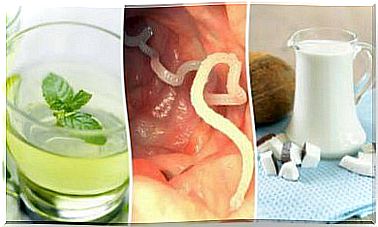Is Cancer Hereditary? What You Need To Know

This is a question that the vast majority of the population has had at one time: is cancer hereditary? For example, if my mother suffered from breast cancer, will I get it too?
First of all, we should make it clear that cancer definitely has a genetic component. But just because it is genetic does not mean it is “hereditary”.
Currently, this disease is so common that most of us almost certainly have a relative who is ill. Or maybe someone you know has gone through the toughest test and, unfortunately, has not been able to overcome it.
Obesity over many generations or the use of tobacco products are factors that can determine the potential risk.
On the other hand, we also know that there are different types of cancers that are more likely to be inherited through the family tree.
Nevertheless, we should emphasize once again the idea we mentioned above: we are dealing with a disease that has a genetic component, but it is not necessarily hereditary.
Today we will give you all the information you need.
Cancer and genetic inheritance
The Cancer Research Center at the University of Salamanca (Spain) published a report in 2010 entitled “Genetic Counseling: A Guide to Preventing Hereditary Cancer”
The report sought to discern whether or not a genetic analysis could determine whether a person is a carrier of a DNA sequence that could make them more “prone” to developing cancer.
In general, the probability that you will inherit certain oncological diseases from your family is between 5 and 10%. These cancers usually have no known environmental factors.

Cancer occurs due to a complex combination of factors
Cancer is a genetic disease. It is derived from certain genes, whether caused by internal or external factors, and these genes are altered and mutated until the cells spread.
- These genetic variations can be exacerbated by things related to your lifestyle. The environment in which you live every day can also be a trigger.
- At the same time, it is usually a subtle combination of everything. However, the likelihood of developing a tumor solely due to hereditary factors is very low.
- Tobacco use, environmental toxins and poor eating habits pose a greater danger.
When can you decide if you have a hereditary predisposition to get cancer?
Because the onset of cancer is usually due to a combination of different factors, it is important to consider several aspects.
We will explain them below.
- When the same type of cancer appears among several different family members.
- When this cancer affects different generations: grandparents, children, grandchildren.
- When the diagnosis occurs in some family members at a young age (before 60).

Cancer with a hereditary component
There are certain types of cancer that have a hereditary component. The risk factor remains at a 5 to 10% threshold.
This is not very high, but you need to pay extra attention and inform your doctor so that you can get the right evaluations.
- Breast cancer
- Ovarian cancer
- Non-polycystic colon cancer
- Melanoma (the most dangerous type of skin cancer)
Is there a test that can determine whether or not you want to develop these types of cancers?
There are several tests that can actually give you some information about the risk. However, we should clarify some important points first:
- These genetic tests will not tell you if you want to develop a hereditary form of cancer – they just tell you how likely it will be.
- The first thing you should do is talk to your doctor. Later, they refer you to what is known as genetic counseling and assessment under the auspices of specialized departments for medical genetics.
- Their function is to study hereditary forms of cancer and to give you advice. It’s not just about receiving the result of a laboratory test.
- They are also there to give you advice: here you will consider your personal and family risk. You will also learn what monitoring strategies you should implement and how you can reduce the risk.
We should emphasize again that the risk of developing cancer due to hereditary factors is very low.
However, since this is a very common fear among the population, genetic counseling and research under the auspices of specialized departments of medical genetics has been created because it is useful and effective.

If there is a family connection, how can you prevent cancer?
As we said earlier, the most important thing is to get good medical advice. If several women in your family have had breast cancer, for example, the most important thing is that you have regular breast exams and mammograms.
At the same time, keep in mind that the genetic component itself is not what usually causes the disease to develop. Cancer usually appears due to other factors that increase the risk and susceptibility.
- It is important to avoid tobacco use.
- Obesity or overweight is another risk factor.
- A diet rich in fat and sugar is another danger you should avoid.
- Not before a sedentary lifestyle.
- Living in an unhealthy environment or working with pollutants or pollutants is another risk.
Regardless, there will always be specialists available to tell you what strategies you need to follow in your daily life.









